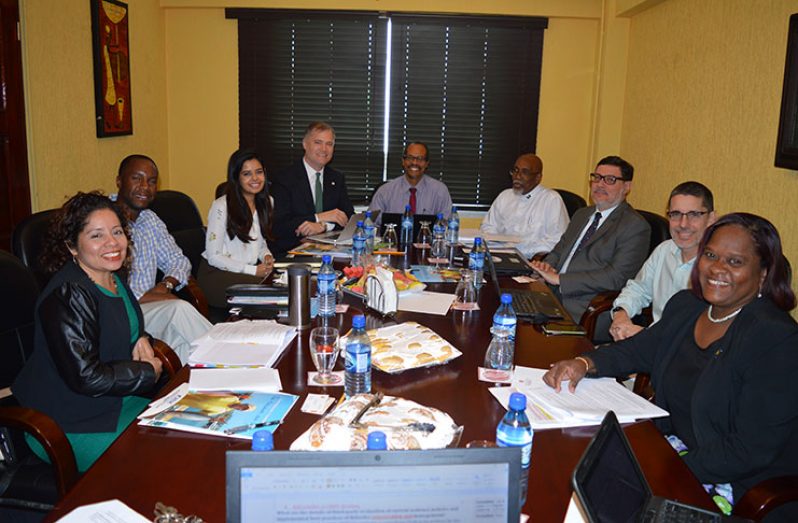-more than 4000 Guyanese could benefit
EFFORTS are being made by the Caribbean Regional Fisheries Mechanism (CRFM) to qualify Caribbean countries to activate the Caribbean Ocean Assets Sustainability Facility (COAST) – an insurance scheme which aims to protect the fisheries sector.This is according to the CRFM in a statement issued on Tuesday, during the hosting of a working group meeting in Belize to advance the implementation of the risk insurance facility for fishers in the region. The COAST insurance scheme will offer an opportunity for countries to buy insurance to help protect their fisheries sector, and hence their food security from severe weather, while promoting resilience to a changing climate and encouraging the conservation of marine environments.
The COAST initiative is being implemented within the context of the Caribbean Community Common Fisheries Policy (CCCFP), which provides a useful framework for considering the requirements for country-led, climate-smart food security strategies in the fisheries sector. According to the statement, a review of the progress made towards the activation of COAST was made when Fisheries Ministers from CRFM Member States met in Cayman Islands in October of last year.
The body explained that the purpose of this two-day meeting is to chart the steps necessary to qualify a pilot country or countries, to purchase the COAST insurance product from the Caribbean Catastrophe Risk Insurance Facility Segregated Portfolio Company (CCRIF SPC) before the start of the hurricane season on June 1, 2017. And according to Julia Duncan, Secretary of State’s Office of Global Food Security, COAST will provide 180,000 fisherfolk and associated industries in the Caribbean access to insurance for losses from severe weather.
In the Caribbean, the fisheries and aquaculture sector is a major economic contributor to domestic markets, with earnings of almost US$420 million in 2014.
In relation to Guyana, more than 4,000 individuals who are directly employed in the fishing industry stand to benefit from this arrangement once it takes effect. These statistics were provided last year by Minister of Agriculture, Noel Holder who said that the sector employs approximately 15,000 people with 4,000 to 5,600 persons being directly employed.
Jamaica has already expressed interest in COAST, which has also been supported in principle by the Council for Trade and Economic Development (COTED), the Caribbean Disaster Emergency Management Agency (CDEMA) Ministerial group, and the Caribbean Network of Fisherfolk Organisations (CNFO). In 2016, Guyana’s fisheries industry recorded a positive growth of 11 per cent. According to the Agriculture Minister, increase in aquaculture will become necessary as a substitute for seafood as the ministry has realised that the marine resources are being challenged.
Nevertheless, he pointed out that over the years, over 20 new aquaculture farms come on stream, while, for the first time in its 50-year history, deep sea fishing will be done in Guyana.
The minister also hinted at the formulation of a Fisheries Advisory Committee, which he said will result in more meaningful consultations with relevant stakeholders on issues affecting the sector. Additionally, he noted that 2017 will also see increased contact between the Fisheries Department and Fishermen’s Cooperatives which will result in improved management of the facilities to better provide for the needs of the fisherfolk.




.png)









